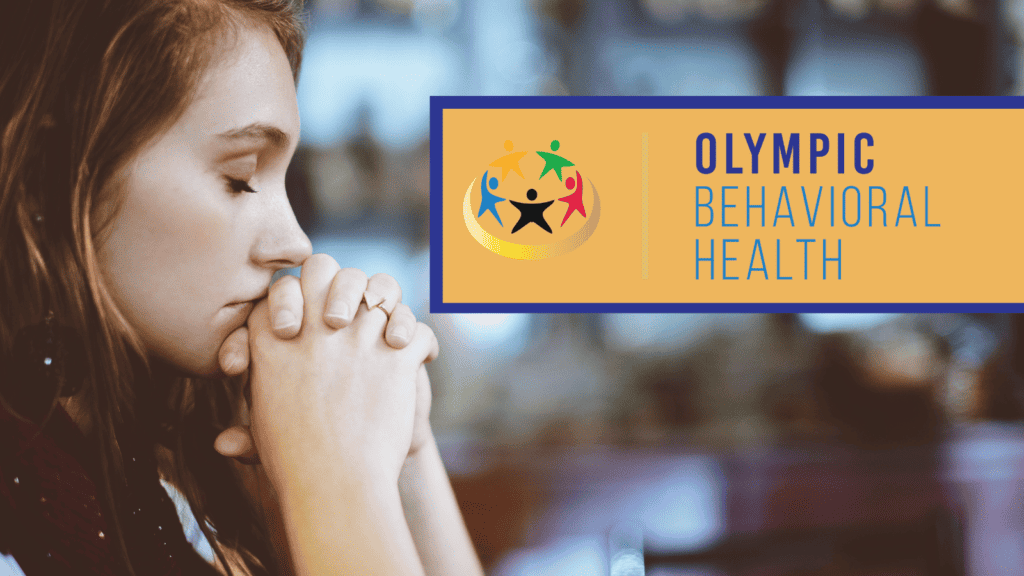Of the millions of Americans struggling with drug and alcohol addiction, only a tiny percentage can successfully quit independently. Drug and alcohol withdrawal symptoms can range in severity, making quitting cold turkey uncomfortable and even dangerous in some cases. With the help of drug and alcohol detox centers and our substance abuse treatment, you do not have to attempt to end your addiction alone.
Olympic Behavioral Health’s trusted detox center partners in West Palm Beach, FL, can help you get through even the most challenging withdrawal symptoms and cravings. We partner with trusted professionals to give you the most effective detox experience so that you can move on to one of our intensive outpatient addiction treatment programs in FL. Call us today at (561) 272-0800 to learn how we help support your detox treatment and provide ongoing care to sustain your recovery from addiction to drugs and alcohol.
What is Drug and Alcohol Detox?
Drug and alcohol detox, short for detoxification, is the process of allowing the body to remove the drugs or alcohol in it while managing the symptoms of withdrawal that accompany this process. It’s often the first step in a substance abuse treatment program and is aimed at addressing the physical aspect of addiction. Here’s a more detailed look at what drug and alcohol detox involves:
- Eliminating Substances from the Body: Detox involves abstaining from the substance to which one is addicted, allowing it to clear from the body. This process can vary in length depending on the substance used, the duration of use, and the individual’s metabolism.
- Withdrawal Symptoms Management: When a person stops using drugs or alcohol, they typically experience withdrawal symptoms. These symptoms can range from mild to severe and may include physical symptoms like nausea, sweating, shaking, and in extreme cases, seizures. Psychological symptoms can include anxiety, depression, and intense cravings.
- Medical Supervision: Due to the potential severity of withdrawal symptoms, detox often occurs under medical supervision, especially for substances like alcohol, benzodiazepines, and opioids, where withdrawal can be particularly severe or even life-threatening. Medical professionals can provide medications to ease withdrawal symptoms and ensure the individual’s safety.
- Medication-Assisted Treatment (MAT): In some cases, medications are used during detox to help reduce cravings and manage withdrawal symptoms. For example, methadone or buprenorphine may be used for opioid detox, and benzodiazepines might be used for alcohol detox.
- Inpatient vs. Outpatient Detox: Detox can take place in an inpatient setting, where the individual stays in a treatment facility, or in an outpatient setting, where they live at home but visit a healthcare provider regularly. The choice between inpatient and outpatient detox depends on the severity of the addiction, the substance involved, the individual’s health, and their support system.
- Support and Counseling: While detox primarily addresses physical dependence, emotional support and counseling are also important. Some detox programs provide or are closely linked with counseling to help individuals start addressing the psychological aspects of addiction.
- Duration: The length of detox varies. It might last from a few days to a week for some substances, but it can be longer for others. The duration is influenced by factors such as the type of substance, the level of dependence, the individual’s physical health, and their metabolic rate.
- Preparation for Further Treatment: Detox is not a standalone treatment for addiction but rather a first step. Successful detox should lead to further treatment, which can include inpatient or outpatient rehab programs focusing on the psychological aspects of addiction and providing tools for long-term recovery.
What To Expect In A Drug And Alcohol Detox Program?
The detox needs are different for different people. The process of drug detox requires personalized treatment. However, the following three steps are crucial:
- Evaluation – Mental exams are held to screen incoming patients. Doctors will use blood tests to determine the amount of drugs in the patient’s body. This will help them determine the level of medications required for them.
A medical, psychiatric, and comprehensive view of the patients is also part of it. This information is also used in the long-term care plan development for the patient.
- Stabilization – Medical and psychological therapy is used to stabilize the patient as a next step. The purpose of this step is to avoid any form of harm to the patient. Medical professionals can prescribe addiction treatment medications to prevent complications and improve withdrawal symptoms.
- Preparing Entry Into Treatment – Preparation for a treatment program is the final step. Medical staff and professionals will familiarize their patients with the comprehensive treatment plan and what to expect in this recovery process. Inpatient rehabilitation programs offer the best chances of success after detox.
HOW DO YOU KNOW IF YOU NEED DETOX?
You may notice that substance abuse treatment programs in Florida are offered with varying levels of care. This is to accommodate different types of addiction and the range of severity of addictions. Someone with a mild addiction may succeed with a traditional outpatient treatment program in FL requiring minimal time commitment. On the other hand, a person battling a severe addiction to drugs and alcohol may need more intensive addiction treatment, including a detox in FL. Without the help of drug and alcohol detox centers in Florida, this person may find it impossible to break their deeply ingrained habit.
How can you tell if you will require detox treatment to end your addiction to drugs and alcohol? Here are some factors that may indicate the need for a professional detox:
- You have tried to quit before, but the withdrawal symptoms were too intense.
- You experience shakiness and anxiety as soon as two hours after an alcoholic drink.
- Your drug or alcohol use includes high or frequent doses.
- You feel the need to use drugs or alcohol as soon as you wake up in the morning.
- You have a co-occurring mental health disorder that is contributing to your addiction.
- You’ve been battling addiction for years.
The severity of drug and alcohol withdrawal can be pretty intense if any of the above apply to you. However, everyone’s body responds differently to drug and alcohol withdrawal, and you can encounter unbearable discomfort even if your addiction is considered minor. Your best course of action is to reach out to drug and alcohol detox centers in South Florida for an assessment to determine if a drug and alcohol detox in florida is necessary.

How Does Olympic Behavioral Health Help?
Several factors can make it nearly impossible or dangerous to try detoxing on your own at home. Rather than attempting an at-home drug and alcohol detox and running a high risk of relapse and overdose, reach out to professional drug and alcohol detox centers in Florida for proper addiction treatment. Olympic Behavioral Health in Florida helps by:
- Assessing your current state of health and designing a personalized addiction treatment plan
- Monitoring you around the clock to ensure your safety during detox
- Providing medication to help alleviate discomfort from withdrawal symptoms
- Dispensing medication to ease anxiety, depression, and insomnia so that you can rest as much as possible during detox
- Offering support from a designated care team
People who choose to get help from drug and alcohol detox centers have a much higher success rate in recovery. When your withdrawal symptoms are well managed, it is easier to stay focused on healing.
Recognizing the Need for Alcohol Detox Treatment
Recognizing the need for alcohol detox treatment is a crucial step in addressing alcohol addiction. It often begins with acknowledging the harmful impact that alcohol is having on one’s life. Warning signs that indicate a need for professional detox and rehabilitation include increased tolerance to alcohol, drinking to avoid withdrawal symptoms, neglecting responsibilities due to drinking, and continued use despite knowing the harmful consequences. If these signs resonate, it’s essential to seek professional help. Early recognition and treatment of alcohol addiction can prevent more severe health issues and set the foundation for a successful recovery.
Early Signs of Alcohol Addiction
Identifying the early signs of alcohol addiction is key to seeking timely treatment. These signs can be subtle at first but typically escalate over time. They include frequent and heavy drinking, preoccupation with alcohol, changes in mood or behavior when drinking or not drinking, withdrawal from social and recreational activities, and negative impacts on work or family life. Physical signs can include changes in sleeping patterns, unexplained injuries, or health problems related to drinking. Acknowledging these signs as indicators of a deeper issue is the first step towards seeking help and beginning the journey to recovery.
Encouraging Timely Intervention
Timely intervention in cases of alcohol addiction is vital for effective treatment and long-term recovery. The sooner an individual seeks help, the better their chances of overcoming addiction and rebuilding their life. Friends and family play a crucial role in encouraging loved ones to seek treatment. At Olympic Behavioral Health, we understand the challenges involved in this process and are here to provide support and guidance every step of the way. Our compassionate team is ready to assist with initial assessments, answer questions, and help navigate the path to recovery. We encourage anyone struggling with alcohol addiction or their loved ones to reach out to us for help and support.
Supporting Long-term Recovery and Preventing Relapse
At Olympic Behavioral Health, our commitment to clients extends far beyond the initial phases of detox and rehabilitation. We understand that long-term recovery from alcohol addiction requires ongoing support and a comprehensive plan to prevent relapse. Our Relapse Prevention Program is designed to provide this continuous support, helping clients navigate the challenges of post-rehabilitation life. These programs may include continued therapy sessions, support groups, and wellness activities that reinforce the skills and strategies learned during treatment. We also focus on building a strong, supportive community around our clients. This network, comprising peers in recovery and professionals, plays a vital role in offering encouragement, sharing experiences, and providing a sense of belonging that is essential for maintaining sobriety.

Finding Alcohol Detox Rehab in West Palm Beach, Florida
At Olympic Behavioral Health, we realize that intense withdrawal symptoms and cravings can make beginning sobriety feel impossible. We are here to help you through withdrawal with drug and alcohol rehab in West Palm Beach Florida from one of our trusted partners. Your health and well-being are our priorities, so you can feel confident in your recovery.




